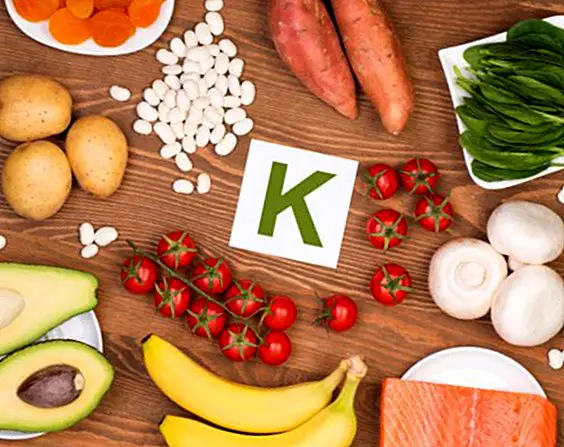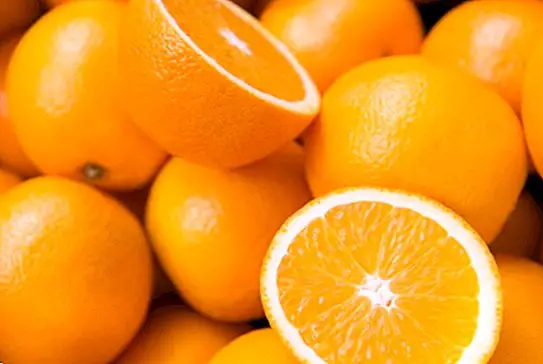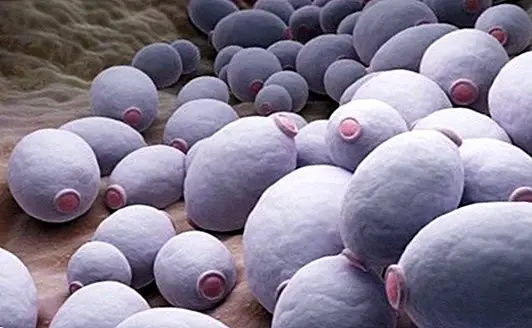Potassium: what it is, functions, benefits and rich foods
The potassium occupies the third place within the minerals that more "govern" in our body, after calcium and phosphorus, for their properties Y Benefits for our Health. This mineral is responsible for normalizing the water balance in the body, participates in the mechanism of contraction and relaxation of the muscles, and in their healthy maintenance.
In fact, as we will see throughout this note, we have a fundamental mineral for the proper functioning of our body, by participating in a wide variety of basic and essential functions.

What is potassium?
Unlike other minerals, the potassium It is a macromineral. Most of it is found inside the skeletal muscle, specifically and to be precise in the same cells.
It basically consists of a electrolyte mineral that we find in the blood, and that our body gets mostly from certain foods. However, a balanced diet is sufficient to provide the amount of potassium our body needs daily, especially if it is based on a diet especially rich in fruits and vegetables.
As we indicated, it's about one of the most abundant minerals in our body, so its accumulation is certainly high.
Main potassium functions
Potassium is, as you can imagine, an extremely important mineral for the proper and proper functioning of our body. In fact, it participates or intervenes in a very active way in a wide variety of elements, being some of its most outstanding functions the following:
- It helps keep blood pressure normal.
- It keeps the correct amount of water in our cells.
- Stabilizes the structure of body cells.
- It maintains the acid-base balance of our organism.
- It stimulates the movements of the intestine.
- It is part of the bones, being essential for the correct growth of our organism.
- Intervenes and participates in the production of proteins.
- It intervenes in the metabolism of carbohydrates.
- Participate in muscle contraction.
Benefits of potassium in health
In addition to the functions indicated above, potassium stands out for providing the following benefits:
- Participate in osmotic balance.
- Maintains a normal blood pressure.
- Involved in nerve transmission.
- Participate in chemical reactions.
- It plays an important role in most vital functions.
- It prevents leakage, regulating the water content of the cells and their movement.
- It maintains the acid-base balance and together with sodium, this mineral controls the quantity and the normal distribution of water in the body.
- It intervenes mainly in the production of proteins and increases neuronal excitability.
- Along with calcium and magnesium, potassium contributes to the regularization of all cellular functions and, above all, to the excitability of the heart, muscles and nervous system; it is essential for the movement of the myocardium and activates the enzymatic systems.

In addition, potassium is useful in preventing the appearance of fluid retention, a mineral that helps in the correct maintenance of the water balance of our organism.
For this reason, there is no doubt that to consume potassium-rich foods, in addition to reducing daily salt consumption, are the best options to avoid fluid retention.
Recommended daily amounts of potassium
Age | (mg / day) | ||
0-6 months | |||
4-6 months | 850 | ||
7-12 months | 700 | ||
1-3 years | 800 | ||
4-6 years | 1.100 | ||
7-10 years | 2.000 | ||
11-14 years | 3.100 | ||
From 15 years | 3.500 |
In what foods can we find potassium? The richest foods
"Normally all poor food in sodium is rich in potassium, "so both the vegetables and the fresh fruits, and mainly the banana, are rich in potassium, like the tomato.
Potassium can also be found in grains, in meats, in vegetables as lentils, beans and chickpeas and of course in the nuts, coffee and cocoa in less quantity.

We summarize in the following table what the foods with the highest potassium content are:
Food | Potassium content |
Raisins | 860 |
Potatoes | 360 |
Pork | 360 |
Cauliflower | 350 |
Tomatoes | 290 |
Chicken | 290 |
Wholemeal bread | 230 |
Green peas | 190 |
Oranges | 180 |
Whole milk | 140 |
Eggs | 136 |
Cheddar cheese | 120 |
An interesting option when it comes to ensuring the correct supply of potassium is consuming fresh fruits, vegetables and vegetables every day. For example, a good strategy is to make our menus or recipes every day with some of these foods: asparagus with cooked ham, artichoke salad, grilled aubergines with a little chic ...
Banana is one of the best known foods for its potassium content, but it is not the only one.
The ideal is to know at least what foods are rich in this mineral and then ensure their contribution.
Symptoms due to lack of potassium
- Paralysis, muscle weakness, distension of the stomach, lack of energy in the gallbladder and stomach that manifest other symptoms such as diarrhea, fatigue, constipation, low tension and irregularity of the pulse (arrhythmia) and edema.
An element to take into account potassium, is when we exercise often, the level of potassium is expelled through sweat, and we must monitor our potassium level in the blood and keep it regulated.
The instability of the minerals sodium and potassium is one of the most frequent causes for which the arterial hypertension.
Who may need potassium supplements?
In some moments or stages of life we may need extra potassium supplementation. This supplementation is especially important in the following cases:
- Athletes who can lose potassium through sweating.
- Consumption of antibiotics for prolonged periods.
- Consumption of diuretics.



